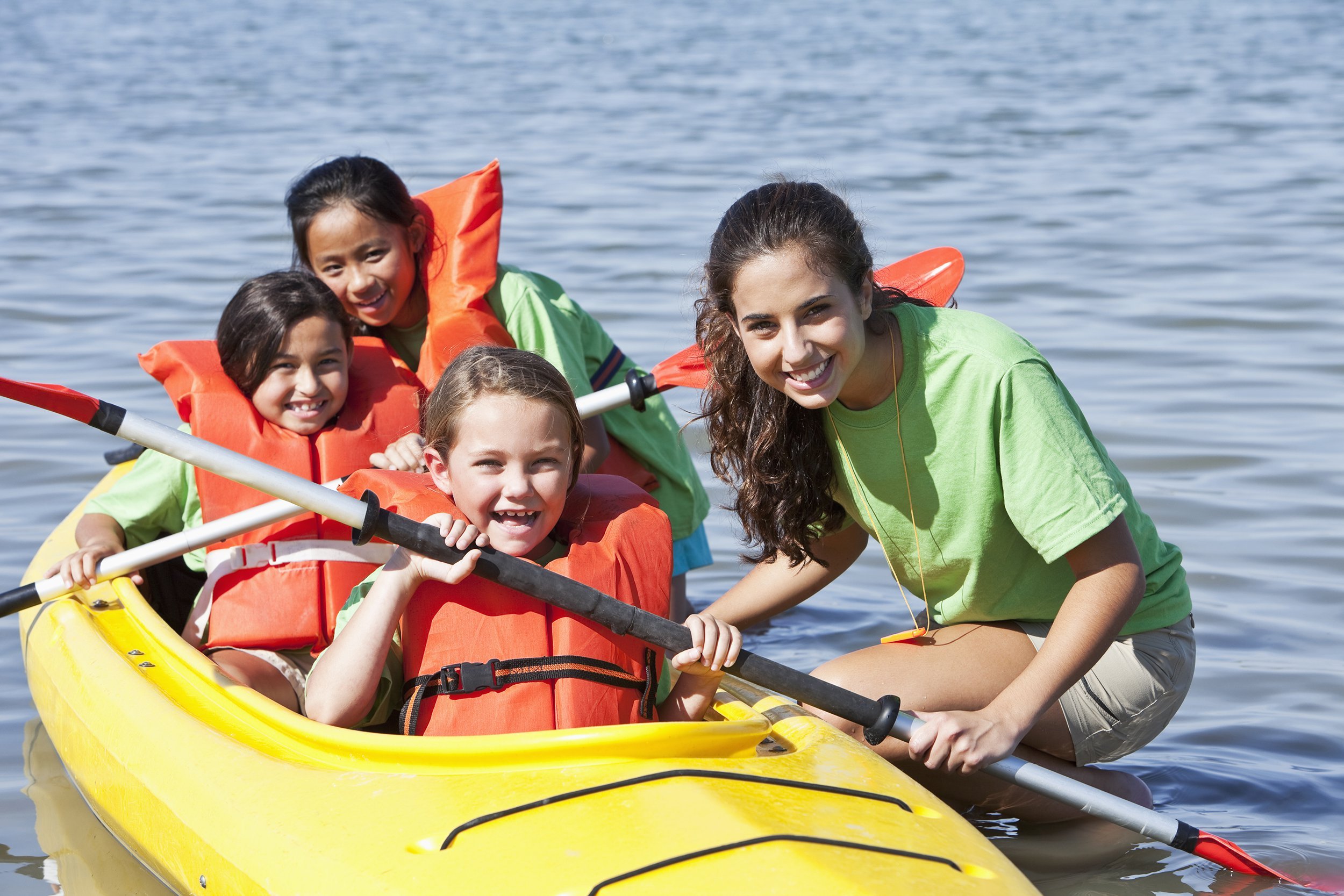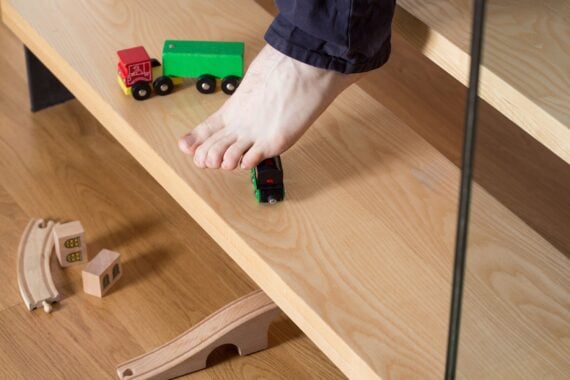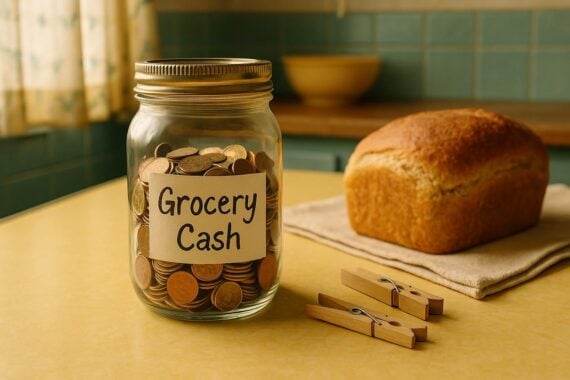With fond memories of cabin mates, campfires, swimming pools, and s’mores, it’s no wonder that parents who went to summer camp want their children to have the same enriching experience. Whether kids go to sleep-away camp or a day program, they can gain new skills, experiences, friends, and memories to cherish. According to the American Camp Association, prices can range from under $100 a week to more than $1,500, but the average cost is $768 a week for an overnight camper and $314 a week for a day camper, with many cheaper choices run by municipalities, educational institutions, and nonprofit groups.
COST

Look at your budget and decide how much you’re willing or can afford to spend. In general, sleep-away camps are more expensive than day camps. And remember to factor in the cost of supplies and “extras” Sleep-away campers will need enough luggage to hold at least a week’s worth of clothing. At more rural summer camps, your child may need gear such as a tent or sleeping bag. Either way, you’ll need to stock up on sunblock, swimsuits, and other seasonal accessories.
FINANCIAL AID

If you’re worried about costs, remember that summer camp programs can be within reach of families on a budget. Parenting suggests several ways to get help with the expense: Pay for camp the same way you pay for day care — with a flex plan through your employer. Check for summer camp scholarship programs and other financial aid. If you attended the same camp, your alumni status may warrant financial assistance. Finally, look for foundations that help families fund summer camp for kids.
CAMP TYPE

Once you’ve established your budget, determine whether your child would prefer a sleep-away or day camp. Younger children and first-time campers may benefit from a day program that returns them home daily. Overnight camps offer a more immersive experience, but make sure the facilities, meals, and location suit the needs of your family.
LOCATION

Determine up front just how far you’re willing to drive, either to ferry your child back and forth each day or to visit at an overnight camp. For a day program, also consider how much travel time your camper can tolerate, regardless whether you or the camp provide the shuttle service. For a sleep-away camp, figure out how often you want to visit (or how often your child wants you to) over the course of their stay. If this is your child’s first time at camp or the child is not confidently independent, you may need to eliminate camps that are far away.
SPECIAL INTERESTS

Talk to your child about the activities he or she wants to pursue and decide what your family wants to gain from the experience. There are many types of programs, ranging from coed and general-interest to single-sex, subject-focused, and academic. For instance, if your child is interested in theater, he or she may thrive in a performing arts summer camp with like-minded peers.
Trending on Cheapism
YMCA CAMPS

This worldwide organization is definitely worth checking out. Its weeklong sleep-away camps and day camps boast wide-ranging offerings, from camping skills to cultural enrichment to sports training. With more than 2,600 locations in the U.S., there’s likely a “Y” in your area.
BOYS AND GIRLS CLUBS OF AMERICA CAMPS

This national organization’s goal is to foster youth growth and development, and it reaches out to all kids, including those who can’t afford other community programs. All clubs offer enrichment programs with facilities such as a game room, sports area, and teen center. Many also offer arts and crafts, a learning/tech center, and classes such as dance, drama, and martial arts. There are thousands of clubs in the U.S., and many operate summer camp programs.
CITY- OR PARK-RUN PROGRAMS

Summer camps organized by cities and local park districts are generally low-cost and convenient. Check with the city or municipal office or the parks and recreation department to find out what type of youth programs are available. Many city-sponsored summer camps run in conjunction with the public school system.
Sign up for our newsletter
HIGH SCHOOL, COMMUNITY COLLEGE, OR UNIVERSITY CAMPS

Many community colleges and some high schools and universities run cheap summer camps for youths in grades 1 through 12. Classes may include anything from archery, softball, and tennis to art, drama, and writing. Contact local schools to see what’s on offer.
RELIGIOUS OR FAITH-BASED ORGANIZATIONS

Cheap camp programs with a religious or faith-based focus might be half-day, daily, or weeklong. Check local community centers and houses of worship for options in your area.
NONPROFIT ORGANIZATIONS

Some nonprofit, children- and family-oriented organizations offer low-cost summer programming. The Children’s Aid Society, for instance, runs numerous summer camps in the New York City area for children of all ages. Contact similar organizations in your community to learn about their summer plans.
FELLOW CAMPERS

Once you’ve narrowed down your budget and camp type, consider the ages of the other campers and the activities offered, and select a summer camp that will attract a pool of potential friends for your child. He or she should have enough contemporaries for age-appropriate activities with others.
COUNSELORS AND FACILITIES

If a few camps seem promising, find out as much as you can about the counselors, including their experience and backgrounds and their styles of guidance and discipline. Ask about the staff-to-camper ratio. For younger children, the ratio should be five to eight children to each counselor, while older children are fine with eight to 10 campers to a counselor. The best way to check out the facilities and speak to the counselors is to visit. (You may want to arrange this the summer before you expect to enroll your child.) Ask the camp director for references and get in touch with parents and campers who can speak about their experiences.
SPECIAL CONSIDERATIONS

If your child has any special medical, dietary, or other needs, choose a summer camp that has experience accommodating similar requirements. For medical needs, make sure the counselors and professional staff are trained to provide care and that the camp is located within close proximity of a hospital.
ACCREDITATION

Choose a summer camp accredited by the American Camp Association, which sets standards for safety and quality. A little over nine out of 10 ACA-accredited camps offer financial aid to help families with the expense. A good place to start your search is the ACA website. After filling out a quick questionnaire, you’ll receive a customized list of summer camps based on your answers. The summer camp programs that seem to be a good fit can send you information directly.






